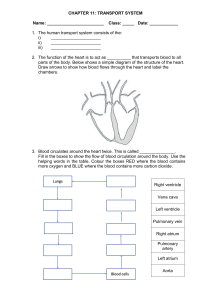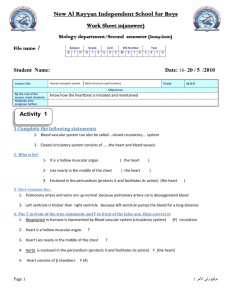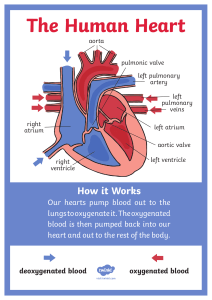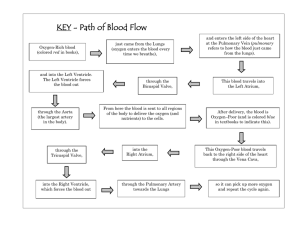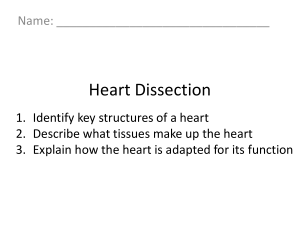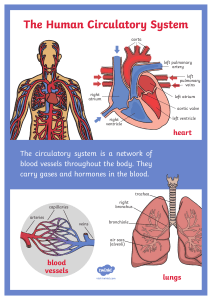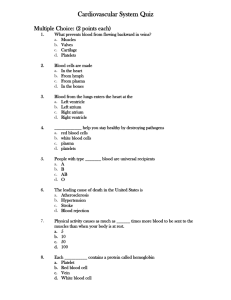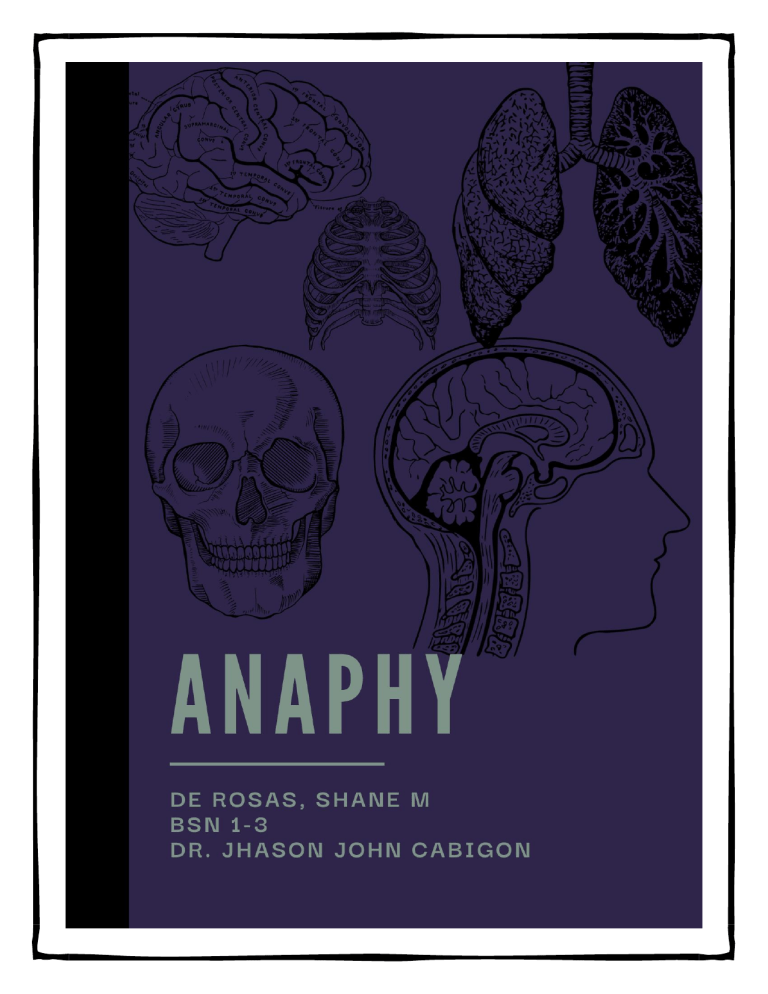
PAGE 101 Last Name: __DE ROSAS, _ First Name: ___SHANE__________ 1. List the function of each cardiac layer and number the order from most to least superficial. (0.5 point) ◦ Pericardium: Number 2, It Fixes the heart in the mediastinum and limits motion. The pericardium serves as a physical barrier from the muscular body and adjacent organs. ◦ Myocardium: Number 3, The myocardium is responsible for the contractile function of the cardiac pump. ◦ Endocardium: Number 4, It keeps the blood flowing through the heart separate from the myocardium, or cardiac muscles. ◦ Epicardium: Number 1, The epicardium is a thin layer of elastic connective tissue and fat that serves as an additional layer of protection from trauma or friction for the heart. 2. Explain why the left ventricle’s walls are thicker than the right ventricle’s. (0.5 point) • Due to its stronger contraction and higher blood pressure than the right ventricle, the left ventricle's walls are thicker than the right ventricle's. In addition, the left ventricle pumps blood throughout the body, while the right ventricle just has to pump blood to the lungs. 3. A child is stung by a bee and experiences an anaphylactic reaction. Upon observing the pathology, you notice a large increase in the number of very large granulocytic white blood cells whose granules obscure the nucleus. What type of cell did you observe? (0.5 point) • Eosinophils increase in reaction to the stinging sensation. The reason for this is because allergic responses are also known as anaphylactic reactions. We may also contend that histamine causes inflammation, which makes it easier for other immune system elements to reach the contaminated area, making basophils involved in the difficulty of fighting allergic responses and large granules that may obscure the nucleus are indicative of basophils, granulocytic white blood cells. Considering their participation in the production as well as the immune response and the synthesis of inflammatory mediators like histamine, basophils can rise in number during an anaphylactic reaction. 4. Correctly match the term with the correct order of blood flow through the heart. (0.5 point) Venous blood enters the __17____ from the ____1____ and ____2____ as well as the coronary sinus, which converge into the the ___3_____. From there blood passes the ____9___ valves and enters the ___16____. The venous blood passes through the ___14____ and from there branches off into the ___7____ and __8____ before circulating through the ___5__. After being oxygenatated, the blood re-enters the heart through the ____6____ which converge into the ____4___. Then the blood flows through the ___10____ into the ____15____. From here, blood is ejected through the ___13_____ into the ___11___ before entering the __12_____ and finally systemic circulation 1. Superior vena cava 2. Inferior vena cava 3. Right atrium 4. Left atrium 5. Lungs 6. Pulmonary veins 7. Left pulmonary artery 8. Right pulmonary artery 9. Right atrioventricular valve 10. Mitral valves 11. Ascending aorta 12. Arch of aorta 13. Aortic semilunar valve 14. Pulmonary semilunar valve 15. Left ventricle 16. Right ventricle 17. Heart PAGE 102 5. What is the anatomical significance of the pericardium and epicardial fat? The visceral layer of the pericardium is also known as the ___Epicardium.____ 6. An individual who cannot coagulate properly is at risk of bleeding out with any significant lesion. A reduction in what type of cell might cause this in such an individual? How does this affect the composition of their blood? • A person who is having trouble due to a reduction in platelets, heavy bleeding may occur during coagulating. Platelets play a crucial role in blood clotting by forming clots to halt bleeding from ruptured blood vessels. Thrombocytopenia may arise from platelet depletion. As a blood ailment defined by a lower-than-normal platelet count. The platelet count of a person suffering from these illnesses is low. As a result, the individual will have more time to allow for blood clotting, which is a critical function of platelets.
